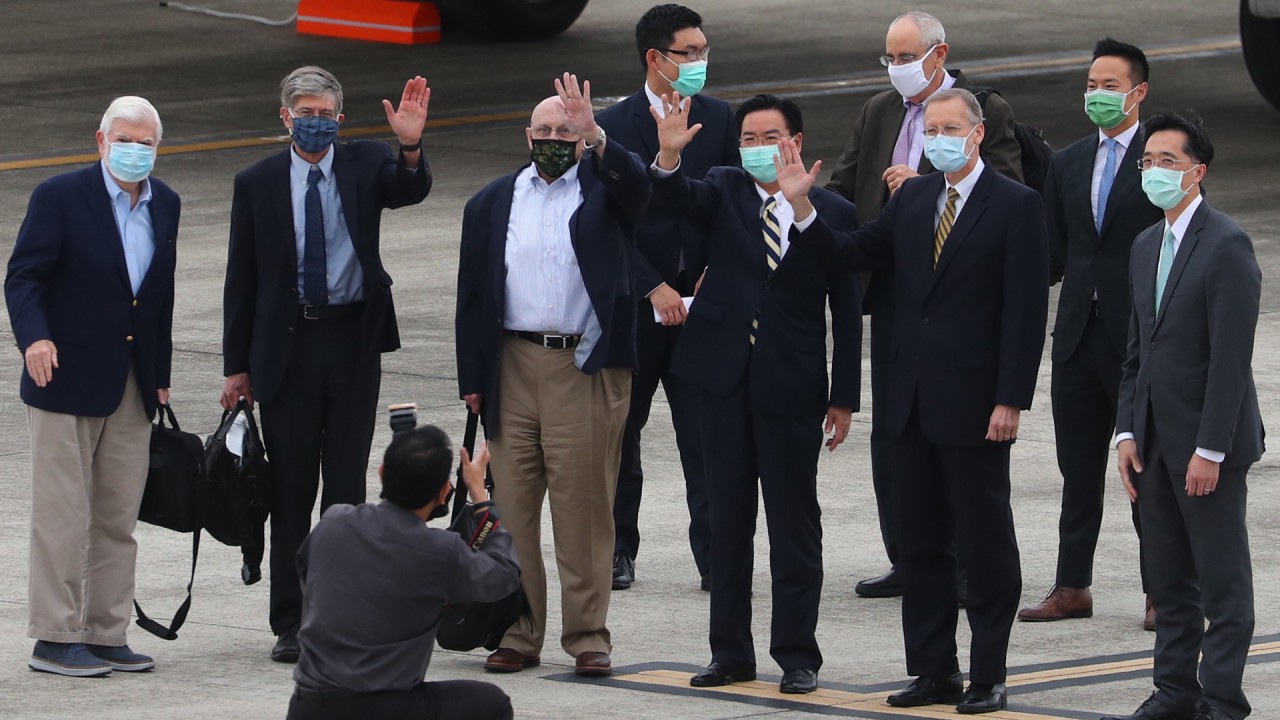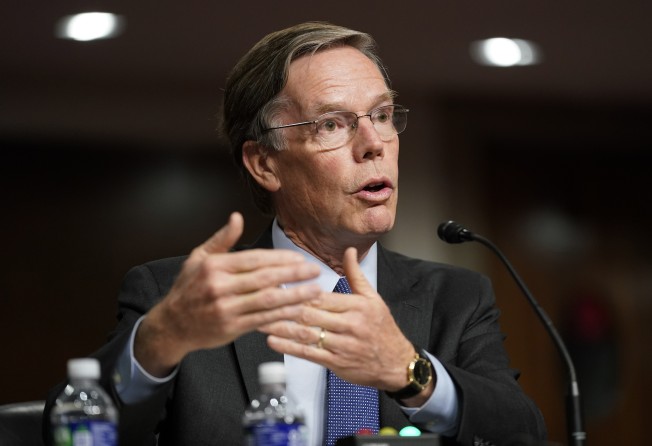
02:02
US delegation visits Taiwan as Beijing warns of military action against the island

No matter how Washington wants to portray its relationship with Beijing to Americans, it needs to cooperate and coordinate on crucial matters of global importance. Nicholas Burns, President Joe Biden’s nominee for United States ambassador to China, took a tough line in his hearing before senators last week, using anti-Chinese rhetoric that was certain to anger his potential hosts.
But as a career diplomat with four decades’ standing, he is surely aware that what can be boldly said in one capital is inadvisable in the other. An envoy best serves his nation by focusing on diplomacy rather than politics.
Since Biden’s predecessor, Donald Trump, American lawmakers have been increasingly hostile towards China. Biden and his Democratic Party have to follow that stance if they want support for policies from opposition Republicans.
Burns used inflammatory terminology, speaking of “genocide in Xinjiang”, “abuses in Tibet”, “smothering” democracy in Hong Kong, and “bullying” of Taiwan.

02:02
US delegation visits Taiwan as Beijing warns of military action against the island
He is well aware that these are sensitive issues for Beijing, so could have anticipated the foreign ministry’s response that all are “purely China’s internal affairs and no foreign forces are allowed to interfere”.
Biden says China is the US’ most serious competitor and Burns said that if confirmed as ambassador, he would help pursue a strategy of competition and cooperation. A foreign ministry spokesman responded that such remarks reflected a “cold war and zero-sum mentality”.
The US is pushing the limits of relations; in recent days, the American president has said the US would go to the defence of Taiwan if mainland China attacked, a position seemingly at odds with Washington’s one-China policy, and his administration announced it would allow Hong Kong people who had been granted “safe haven” status as a result of Beijing’s introduction of national security laws to apply for jobs. Coupled with Washington’s trade and technology rivalry and a stepped-up military presence, regional stability is at risk.
Burns is respected by Democrats and Republicans alike, having served presidents from both political parties. It is likely he will be approved as his country’s top diplomat in China.
He is well aware of the importance and value of the nations working together on issues such as climate change and North Korea’s nuclear programme and has considerable experience cooperating with Chinese officials on issues, including Afghanistan and Iran.
Should he become ambassador, he knows only too well that what he says in Beijing has to be worlds apart from what is expected of him in Washington.